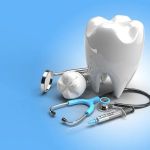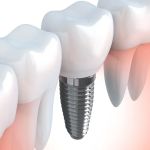
- what-is-calcium-and-why-it-matters-for-teeth
- how-calcium-strengthens-your-teeth
- signs-you-might-have-a-calcium-deficiency
- daily-sources-of-calcium-for-strong-teeth
- real-life-example-the-impact-of-calcium-on-dental-health
- how-to-choose-calcium-products-for-dental-health
1. What Is Calcium and Why It Matters for Teeth
Calcium is a mineral that's essential not just for bones, but also for dental health. It plays a crucial role in maintaining the strength and structure of teeth by helping build and repair enamel, the outer layer that protects teeth from decay. Without enough calcium, teeth can weaken, become brittle, and more susceptible to cavities and erosion.
Most people associate calcium with milk, but its importance for oral health goes far beyond childhood. Adults and seniors alike require sufficient calcium intake to prevent long-term dental problems. At Dentistry Toothtruth, we emphasize the role of calcium in every stage of life to preserve a confident, healthy smile.
2. How Calcium Strengthens Your Teeth
To understand the importance of calcium for teeth, it’s essential to grasp how teeth are built. Enamel, the hardest tissue in the human body, relies heavily on calcium for its durability. Calcium ions help form hydroxyapatite crystals—key components of enamel that resist acid and plaque attacks.
When calcium levels are adequate, teeth remain firm, white, and resilient. A deficiency, however, can cause enamel demineralization. This creates tiny holes in the surface, inviting bacteria and leading to decay. Calcium also supports the health of the jawbone, which holds your teeth in place, making it a double defense against tooth loss.
3. Signs You Might Have a Calcium Deficiency
Many people don’t realize they’re lacking calcium until symptoms begin to affect their oral health. Some common signs include:
— Increased tooth sensitivity, especially to hot or cold— Weak or crumbling teeth— Frequent cavities despite good brushing habits— Receding gums or jawbone pain— White spots or discoloration on enamel
If you're experiencing any of these issues, it might be time to evaluate your calcium intake. Dental professionals at Dentistry Toothtruth often spot early signs of calcium deficiency during routine checkups and recommend personalized nutrition and supplement strategies.
4. Daily Sources of Calcium for Strong Teeth
Incorporating calcium-rich foods into your diet is one of the best ways to protect your teeth. Common sources include:
— Dairy products like cheese, milk, and yogurt— Leafy greens such as kale and spinach— Almonds, sesame seeds, and tofu— Calcium-fortified foods and beverages
It’s also important to pair calcium with vitamin D, which helps the body absorb it more efficiently. Whether you're eating a plant-based diet or have dietary restrictions, a consultation with experts at Dentistry Toothtruth can help you find the right balance.
5. Real-Life Example: The Impact of Calcium on Dental Health
Consider the case of Megan, a 32-year-old teacher who thought her daily brushing routine was enough. Despite regular dental hygiene, she began experiencing enamel thinning and sensitivity. A visit to her dentist revealed a mild but persistent calcium deficiency due to a vegan diet low in fortified foods.
After integrating calcium supplements and fortified plant milk into her routine—and with guidance from professionals at Dentistry Toothtruth—Megan's enamel began to strengthen. Her next checkup showed reduced sensitivity and no new cavities, proving how vital calcium truly is to dental wellness.
6. How to Choose Calcium Products for Dental Health
The market is full of supplements and products claiming to boost calcium levels, but not all are created equal. Some offer better absorption rates, while others may contain unnecessary additives. Look for calcium citrate or calcium phosphate, which are more bioavailable, and avoid excessive doses without professional advice.
At Dentistry Toothtruth, we guide users toward trusted calcium products tailored to their dental needs, age, and lifestyle. Whether it’s a chewable supplement, toothpaste infused with calcium, or a mouth rinse designed for remineralization, the right product makes all the difference.







 MGK Dental0.0 (0 review)
MGK Dental0.0 (0 review) Think Better Life - Orofacial Pain, TMJ & Sleep Disorder Solutions Chicago4.0 (11 review)
Think Better Life - Orofacial Pain, TMJ & Sleep Disorder Solutions Chicago4.0 (11 review) Jin Hahn, DMD4.0 (18 review)
Jin Hahn, DMD4.0 (18 review) Community Dental Care - Maplewood2.0 (224 review)
Community Dental Care - Maplewood2.0 (224 review) Northland Family Dentistry4.0 (111 review)
Northland Family Dentistry4.0 (111 review) Dental365 - Bellmore4.0 (318 review)
Dental365 - Bellmore4.0 (318 review) The Importance of Oral Health Education During Pregnancy for a Healthy Pregnancy
The Importance of Oral Health Education During Pregnancy for a Healthy Pregnancy Best Tips for Brushing Your Teeth Properly for Healthy Gums: Essential Techniques for Oral Health
Best Tips for Brushing Your Teeth Properly for Healthy Gums: Essential Techniques for Oral Health Why Skipping Dental Checkups Can Lead to Bigger Oral Health Problems
Why Skipping Dental Checkups Can Lead to Bigger Oral Health Problems Advantages of Porcelain Dental Restorations
Advantages of Porcelain Dental Restorations How Can Diabetes Cause Tooth and Gum Problems? Preventing and Managing Oral Health Issues
How Can Diabetes Cause Tooth and Gum Problems? Preventing and Managing Oral Health Issues Healthy Habits for Promoting Good Oral Health and Hygiene: Tips for a Healthy Smile
Healthy Habits for Promoting Good Oral Health and Hygiene: Tips for a Healthy Smile